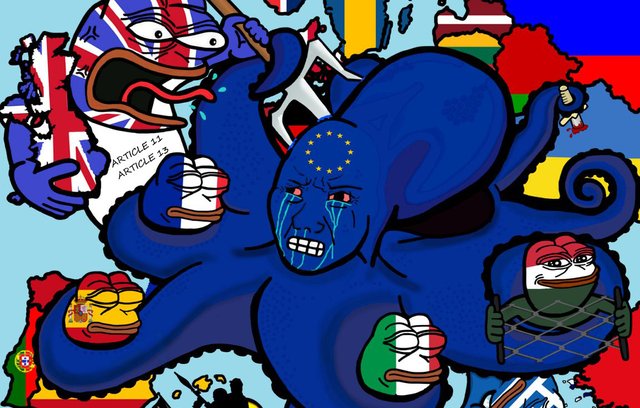
All of the privacy-conscious minds welcome attempts to prevent big tech companies from abusing users' data and breaching their privacy. But this time European Union seem to have taken things too far. The General Data Protection Regulation (GDPR) already seems like a thing in the past as the internet is going nuts over the new Copyright Directive. What does it mean for average users and is getting a VPN a solution?
At first glance, the Directive may seem like a long-awaited step to protect authors' rights to their work, but various activists argue its potential to pose a danger to freedom of expression and speech.
In particular two articles, Article 11 and 13, are in the spotlight. If European Parliament votes to pass the new Directive, getting a VPN service will become mandatory. The vote was postponed to 10 September 2018 due to the majority of the EP favoring first further discussion and potential amendments.
What's the fuss all about and what it may mean to your Tinder profile?
Article 11
In theory, this regulation should give extra copyright to European publishers. Article 11 would allow news websites to charge various content platforms that use link preview snippets.
For example, if a Facebook user posts a link from some news website, the website can charge Facebook because it allows such snippets.
Article 11 should make it easier for the websites to enforce copyright on their articles.
What are the concerns regarding Article 11
Soon after the draft of Article 11 was published in 2016, 37 academics of the University of Cambridge signed an open letter which concluded: ‘We believe the proposed right is unnecessary, undesirable, introduces unnecessary uncertainty and is unlikely to achieve anything apart from adding to the complexity and cost of operating in the copyright environment’.
Moreover, in 2017 European Parliament interviewed representatives of the largest newspapers in Spain and Germany - countries, which have experiences with similar laws. The study concluded, the respondents found Article 11 unnecessary.
Article 13
The aim of Article 13 is for internet platforms to start monitoring and filtering content to prevent copyright infringement.
Basically, under Article 13 internet service providers that share user-generated content (text, videos, pictures, games, sounds, codes, etc.), the provider must check if the content is not copyrighted.
What are the concerns regarding Article 13
Internet platforms with large user bases will have to implement algorithms to scan every upload to their website. Critics worry that machines won't be able to determine the difference between a parody, a meme, a mix of a new Drake song and as a consequence delete or block the piece.
Digital activists are campaigning against Article 13. The Electronic Frontier Foundation (EFF) and 56 other civil society organizations issued an open letter to European lawmakers outlining their grave concerns.
It reads: "Article 13 appears to provoke such legal uncertainty that online services will have no other option than to monitor, filter and block EU citizens’ communications if they are to have any chance of staying in business."
Also, they stress out that some of the requirements contradict other European directives, as well as human rights of freedom of speech and expression.
There's even more radical approach to Article 13. Some of the tech and privacy bloggers worry the new law might 'end the internet' nor companies would be able to comply with the new regulations.
Imagine, if internet trolls copyright every word ever posted on Wikipedia; or your Tinder profile picture being blocked because you're wearing a t-shirt with a copyrighted image? According to some, this can also be possible.
Is internet freedom achievable under Article 13?
Well, in case the Parliament passes the new Directive, it's going to be difficult to browse the internet freely.
First of all, there's not much you could do about Article 11 as it doesn't directly concern average users. But using a VPN can help with the potential negative impact of Article 13.
Trusted VPN providers, such as Surfshark, mask their users' IP address and encrypt all data, sent and received. It's impossible to tell the country of a VPN user or to spy on what he or she does online.
When you use Surfshark, your original IP address is hidden, and you appear to surf the internet from the location of one of the servers'. You can quickly select a location outside of the EU and enjoy the unlimited internet.
Congratulations @northwreck! You received a personal award!
Click here to view your Board
Downvoting a post can decrease pending rewards and make it less visible. Common reasons:
Submit
Congratulations @northwreck! You received a personal award!
You can view your badges on your Steem Board and compare to others on the Steem Ranking
Vote for @Steemitboard as a witness to get one more award and increased upvotes!
Downvoting a post can decrease pending rewards and make it less visible. Common reasons:
Submit